Text
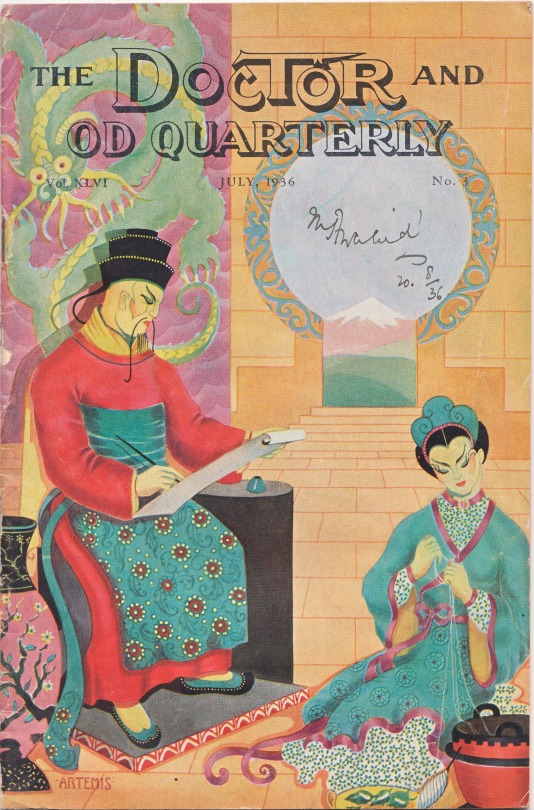

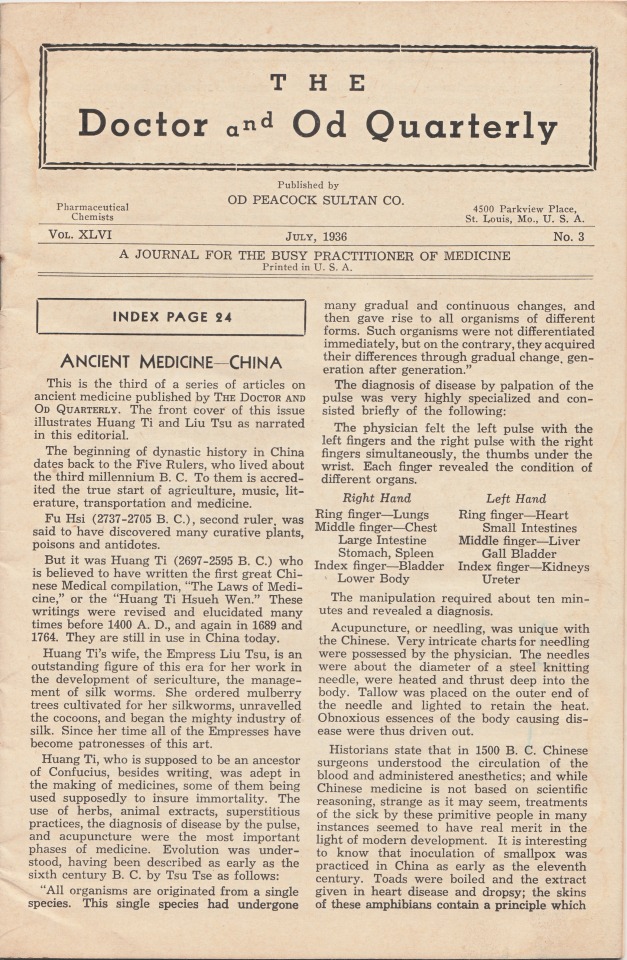

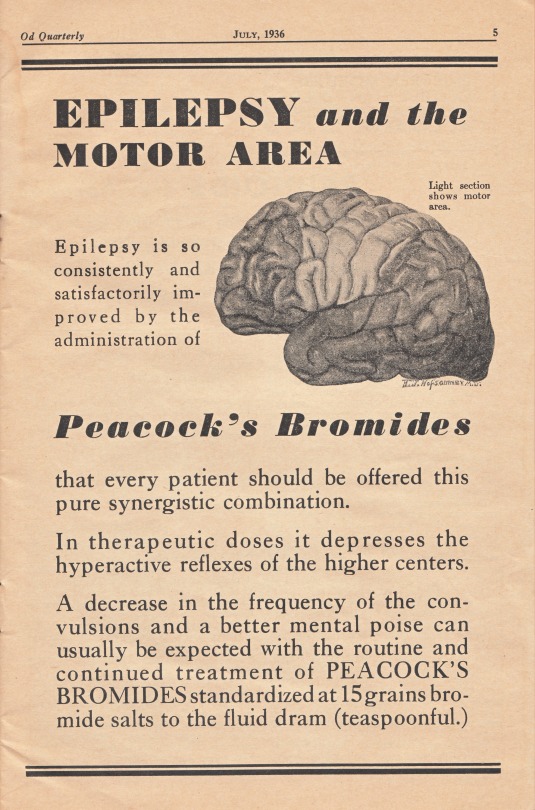





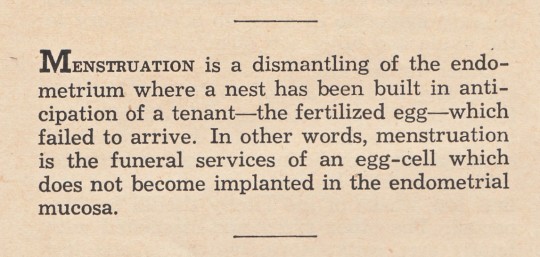



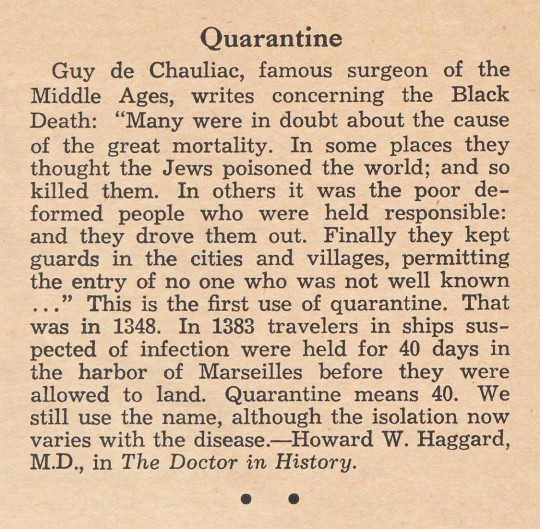

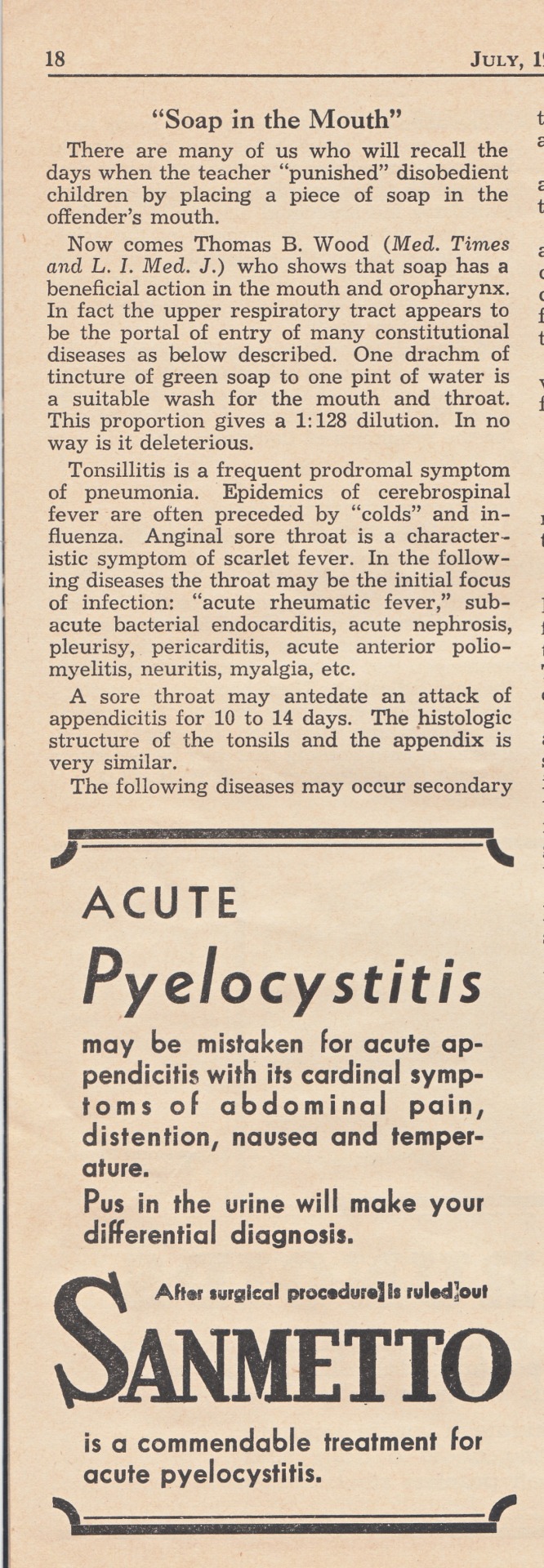
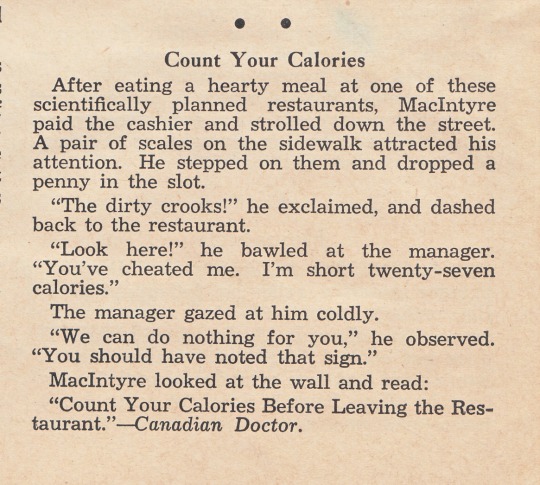



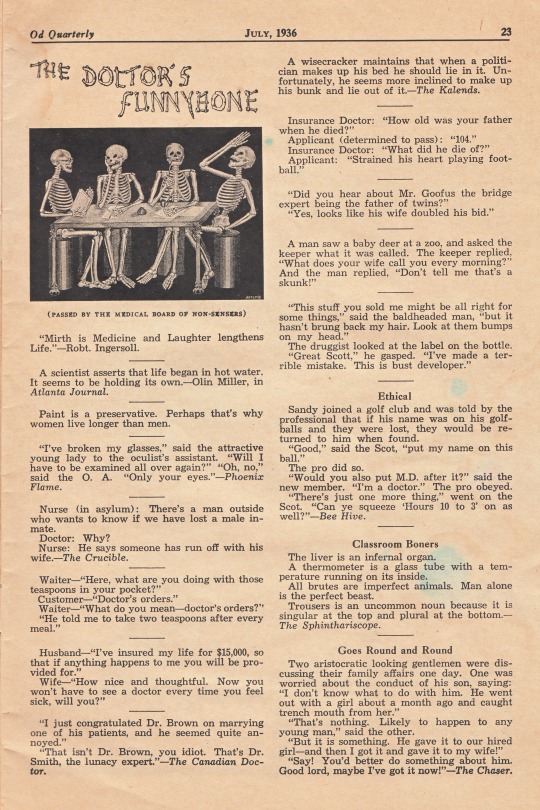


The Doctor and Od Quarterly
Published by OD PEACOCK SULTAN CO.
Pharmaceutical Chemists
A JOURNAL FOR THE BUSY PRACTITIONER OF MEDICINE
Printed in U. S. A.
July, 1936
#The Doctor and Od Quarterly#July#1936#"July#ARTEMIS#SANMETTO#Published by OD PEACOCK SULTAN CO.#Pharmaceutical Chemists#A JOURNAL FOR THE BUSY PRACTITIONER OF MEDICINE#Printed in U. S. A.#Peacock’s Bromides#Sex Hormone Obtained From Whales#Seng#DO YOU KNOW ?#“OD” Cleanings and Therapeutic Suggestions#Menstruation#PRUNOIDS#Quarantine#Funny#Soap in the Mouth#Count Your Calories#Arts and Sciences#Chionia#THE DOCTOR’S FUNNY BONE#THE DOCTOR’S FUNNY BONE (PASSED BY THE MEDICAL BOARD OF NON-SENSERS)#PASSED BY THE MEDICAL BOARD OF NON-SENSERS#SENG#Journal#illustrations#illustration
1 note
·
View note
Text
SOME IMPORTANT PROVERBS
(1) اتفاق میں بڑی طاقت ہے۔
Union is strength.
(2) احمد کی پگڑی محمود کے سر۔
To rob Peter, to pay Paul.
(3) ایک ہاتھ سے تالی نہیں بجتی۔
It takes two to make a quarrel.
(4) ایک مچھلی سارے جل کو گندا کر دیتی ہے۔
A black sheep infests the whole flock.
(5) اوروں کو نصیحت اور خود میاں فضیحت۔
Example is better than precept.
(6) ایک پنتھ دو کاج
To kill two birds with one stone.
(7) آم کے آم گٹھلیوں کے دام
Money for money and the interest besides.
(8) اول خویش بعدہ درویش
Charity begins at home.
(9) اندھوں میں کانا راجہ۔
Figure among cyphers.
(10) اونچی دوکان پھیکا پکوان
Great boast, small roast.
(11) اندھا کیا جانے بسنت کی بہار۔
A blind man is no judge of colours.
(12) انت بھلا سو بھلا۔
All is well that ends well.
(13) اشرفیاں لٹیں کوئلوں پر مہر۔
Penny wise, pounds foolish.
(14) آسمان سے گرا کھجور پر اٹکا۔ چولہے سے نکلا بھاڑ میں گرا۔
Out of the frying pan into the fire.
(15) ادلے کا بدلا۔
Tit for tat.
(16) اپنے منہ میاں مٹھو۔
Self praise is no recommendation.
(17) اپنی گلی میں کتا بھی شیر ہوتا ہے۔
Every cock fights best on his own dung hill.
(18) آپ مرے جگ پر لو۔
Death's day is Doom's day.
(19) ساون کے اندھے کو ہرا ہی ہرا سوجھتا ہے
Every thing looks pale to the jaundiced eye.
(20) اپنا دیجئے دشمن کیجئے۔
He that doth lend doth lose a friend.
(21) اپنا اپنا غیر غیر۔
Blood is thicker than water.
(22) اب پچھتائے کیا ہوت جب چڑیاں چگ گئیں کھیت
It is no use crying over spilt milk
(23) اول تقدیر بعدۂ تدبیر۔
Man proposes, God disposes.
(24) ایک کریلا دوسرے نیم چڑھا۔
A pimple has grown upon an ulcer.
(25) بری صحبت سے آدمی اکیلا اچھا۔
Better alone than in bad company.
(26) بچّہ بغل میں ڈھنڈورہ شہر میں۔
It is looking for a thing when it is in the mouth.
(27) بغل میں چھری منہ میں رام رام۔
A lion in sheep's clothing.
(28) بندہ جوڑے پلی پلی اور رام لڑھائے کپہ۔
Man proposes and God disposes.
(29) بہتی گنگا میں ہاتھ دھولو۔
Make hay while the sun shines.
(30) بھلا جو چاہے آپ کا دینا نہ رکھے باپ کا۔
He that goes a-borrowing goes a-sorrowing.
(31) بنا روئے ماں بھی دودھ نہیں دیتی۔
A closed mouth catches no flies.
(32) بکرے کی ماں کب تک خیر منائے گی۔
A pitcher that oft goes to the well will break at last.
(33) بھینس کے آگے بین بجانا۔
To cast pearls before swine.
(34) بیکار سے بیگار بھلی۔
Idleness is the root of all evil or An idle man's brain is the devil's workshop.
(35) پرہیز علاج سے بہتر ہے۔
Prevention is better than cure.
(36) بھاگتے چور کی لنگوٹی ہی سہی۔
From a bad paymaster get what you can.
(37) پہلے تولو پھر بولو۔
Think before you speak.
(38) پیش ازمرگ واویلا۔
Crying before one is hurt.
(39) پہلے بوؤ پہلے کاٹو۔
First sow, first mow.
(40) تندرستی ہزار نعمت ہے۔
Health is wealth.
(41) تھوتھا چنا باجے گھنا۔
Empty vessels make much noise.
(42) تیل دیکھو تیل کی دھار دیکھو
دیکھیں اونٹ کس کروٹ بیٹھتا ہے
Let's see which way the wind blows.
(43) تجھ کو پرائی کیا پڑی اپنی نبیڑ تو۔
Sweep before your own door.
(44) جہاں پھول وہاں کانٹا
Where there is a rose there is a thorn.
(45) جب اوکھلی میں دیا سر تو موسلوں کا کیا ڈر۔
What cannot be cured must be endured.
(46) جب تک سانس تب تک آس۔
As long as there's life, there's hope.
(47) جتنی چادر دیکھو پاؤں پسارو۔
Cut your coat according to your cloth.
(48) جس کی لاٹھی اس کی بھینس
Might is right.
(49) جس کا کام اُسی کو ساجے۔
Every man doth his own business best
(50) جہاں چاہ وہاں راہ۔
Where there is a will, there is a way.
(51) جو گرجتے ہیں سو برستے نہیں۔
Barking dogs seldom bite
(52) جھوٹ کے پیر نہیں ہوتے
A lie has no legs to stand upon
(53) جیسا کروگے ویسا بھروگے
As you sow so shall you reap.
(54) جیسا دیس ویسا بھیس۔
When in Rome, do as the Romans do.
(55) چاہ کن را چاہ درپیش
He who digs a pit for others, falls into it himself.
(56) چراغ تلے اندھیرا۔
It is always dark below the light-house.
(57) چور کی داڑھی میں تنکا۔
A guilty conscience needs no accuser.
(58) خربوزے کو دیکھ کر خربوزہ رنگ بدلتا ہے۔
When the old cock crows, the young cock learns.
(59) دام بنائے کام۔
Money makes the mare go
(60) دریا میں رہنا مگرمچھ سے بیر۔
It is hard to live in Rome and fight with the Pope.
(61) دل کو دل سے راحت ہوتی ہے۔
Love begets love.
(62) دودھ کا جلا چاچھ کو پھونک پھونک کر پیتا ہے۔
A burnt child dreads the fire.
(63) دوست وہ جو مصیبت میں کام آئے۔
A friend in need is a friend indeed.
(64) دو ملاؤں میں مرغی حرام۔
Too many cooks spoil the broth.
(65) دھوبی کا کتا نہ گھر کا نہ گھاٹ کا۔
Between two stools one cometh to the ground.
(66) دیانتداری سب سے اچھی حکمت عملی ہے۔
Honesty is the best policy.
(67) دیکھیں اُونٹ کس کروٹ بیٹھتا ہے۔
Let's see which way the wind blows.
(68) ڈوبتے کو تنکے کا سہارا۔
A drowning man, will catch at a straw.
(69) زبان خلق کو نقارۂ خدا سمجھو۔
The voice of people is the voice of God.
(70) زبردست کا جوتا سر پر۔
Might is right
(71) سچ کی ہمیشہ فتح ہوتی ہے۔
سچ کا بول بالا۔ جھوٹے کا منہ کالا۔
سانچ کو آنچ نہیں۔
Truth fears no examination.
(72) سر منڈاتے ہی اولے پڑے۔
He has met with mishap at the very outset.
(73) سہج پکے سو میٹھا ہو۔
Slow and steady wins the race.
(74) ترت دان مہا کلیان
He giveth twice that giveth in a trice
(75) سستا روئے بار بار مہنگا روئے ایک بار
A cheap buyer takes bad meat.
(76) کئی گھروں کا مہمان بھوکا رہتا ہے۔
Every body's business no body's business.
(77) شیخی کا منہ کالا غرور کا سر نیچا
Pride goeth before a fall.
(78) صفائی پارسائی سے دوسرے درجے پر ہے۔
Cleanliness is next to Godliness.
(79) ضرورت ایجاد کی ماں ہے
Necessity is the mother of invention.
(80) عقلمند کو اشارہ ہی کافی ہے۔
A word to the wise.
(81) جس کے سر تاج اس کے سر میں کھاج
کوٹھی والا روئے چھپر والا سوئے
Uneasy lies the head that wears a crown
(82) قہر درویش بر جان درویش۔
What cannot be cured must be endured.
(83) کاٹھ کی ہنڈیا بار بار نہیں چڑھتی۔
It is a silly fish that is caught twice with the same bait.
(84) کتے کا کتا بیری۔
Two of a trade seldom agree.
(85) کند ہمجنس با ہمجنس پرواز کبوتر با کبوتر باز با باز۔
Birds of a feather flock together.
(86) گربہ کُشتن روزِ اوّل۔
To nip the evil in the bud.
(87) گزشتہ را صلوٰۃ آئندہ را احتیاط۔
Let by-gones be by-gones.
(88) گڑ کھائیں گلگلوں سے پرہیز۔
To swallow an elephant but strain at a gnat.
(89) گھر کا جوگی جوگنا باہر کا جوگی سدہ۔
A prophet is seldom honoured at home.
(90) گیا وقت پھر ہاتھ آتا نہیں۔
Time once lost is lost forever.
(91) لاتوں کے بھوت باتوں سے نہیں مانتے۔
A nod to the wise, but rod to the donkey.
(92) مفت کی شراب قاضی کو بھی حلال ہوتی ہے۔
An open door will tempt even a saint.
(93) مال مفت دلِ بے رحم۔
Easy come, easy go.
(94) مال حرام بود بجائے حرام رفت۔
Ill got, ill spent.
(95) مایا کے بھی پاؤں ہوتے ہیں
آج میری کل تیری۔
Riches have wings.
(96) موت کا کوئی علاج نہیں۔
Death defies the doctor.
(97) موت اور گاہک کا کوئی وقت نہیں
Death keeps no calendar.
(98) میں بھی رانی تو بھی رانی کون بھرے گا پانی۔
I stout, thou stout who will carry the dirt out.
(99) نام بڑا یا دام
A good name is better than riches.
(100) نظر سے دور اور دل سے دور
Out of sight, out of mind.
(101) نو نقد تیرہ اُدھار۔
A bird in hand is worth two in the bush.
(102) نہیں محتاج زیور کا جسے خوبی خدا نے دی۔
Beauty needs no ornament.
(103) نیم حکیم خطرۂ جان
A little knowledge is a dangerous thing.
(104) نوسو چوہے کھا کر بلی حج کو چلی۔
He can never be God's martyr that is devil's servant.
(105) نہ کتّا دیکھے نہ بھونکے
That the eye sees not, the heart rues not.
(106) نہ نو من تیل ہوگا نہ رادھا ناچے گی۔
If the sky falls, we shall catch larks.
(107) نیا نوکر چار دہاڑے
New broom sweeps well.
(108) نیکی مرنے کے بعد یاد رہتی ہے۔
Virtue survives the grave.
(109) انجام بالخیر یا انت بھلا سو بھلا۔
All is well that ends well.
(110) ناچ نہ جانے آنگن ٹیڑھا
A bad workman quarrels with his tools.
(111) واہ پیر علیا پکائی تھی کھیر ہو گیا دلیا۔ تدبیر کنُد بندہ، تقدیر زند خندہ
Man proposes, and God disposes.
(112) وقت سب زخموں کی مرہم ہے
Time heals all wounds.
(113) وہ سب ایک ہی تھیلی کے بٹے ہیں۔
They are all chips of the same block.
(114) وہ دن گئے جب خلیل خاں فاختہ اڑایا کرتے تھے۔
Gone is the goose that laid golden eggs.
(115) وہی متن وہی راگ
It's harping on the same string.
(116) ہاتھ پر سرسوں نہیں جمتی۔
Rome was not built in a day.
(117) ہاتھی کے دانت کھانے کے اور دکھانے کے اور
All that glitters, is not gold.
(118) ہونہار بروا کے چکنے چکنے پات
Coming events cast their shadows before.
(119) ہر روز عید نیست کہ حلوا خورد کسے
Christmas comes but once a year.
(120) ہاتھ کنگن کو آرسی کیا
Self evident truth needs no proof, good wine needs no bush.
(121) ہاتھ نہ پہنچے تھو کوڑی
Grapes are sour.
(122) ہنوز دہلی دور است
Count not your chickens before they are hatched.
(123) ہر کمالے را زوالے
Every tide has its ebb, every rise its fall.
(124) ہمت مرداں مددِ خدا۔
God helps those who help themselves.
(125) ہمہ یاراں دوزخ ہمہ یاراں بہشت
Death with friends is a festival.
1 note
·
View note
Text
Miscellaneous sentences of every day use.
(1) امتحان سر پر کھڑا ہے۔ محنت کرو۔ کمریں کس لو۔
The examination is at hand, work hard ; gird up your loins.
(2) اس کی تبدیلی سے پہلے اس کے دوستوں نے اس کو الوداعی پارٹی دی۔
On the eve of his transfer, his friends gave him a farewell party.
(3) وہ سوکھ کر کانٹا ہو گیا۔
He was reduced to a skeleton.
(4) تم ہزار کہو وہ سننے کا ہی نہیں۔
You may go on talking, he shall turn a deaf ear to you.
(5) ہم نے ٹانگہ ڈرائیور کو آواز دی
We hailed a tonga driver
(6) اس کو نوکری سے برطرف کیا گیا
He was sacked.
(7) ڈاکوؤں نے اسے جنگل میں آ گھیرا اور جو روپیہ پیسہ اس کے پاس تھا چھین کر لے گئے۔
The robbers got at him in the jungle and made off with what he had.
(8) اپنا الزام دوسرے کے سر پر مت تھوپو
You must not shift the blame from your own shoulders on to that of another.
(9) ادھورا کام کرنے سے کام اچھا نہیں ہوتا
Things done by halves are never done right.
(10) مجھے پاؤں رکھنے کی جگہ نہیں۔
I have nowhere to lay my foot.
(11) تمہارا ستارہ بلندی پر ہے
Your star is now in the ascendant.
(12) وہ مشکل میں پڑ گیا۔
He is in a fix.
(13) اس نے مجھے بیوقوف بنا ڈالا ہے۔
He has made a fool of me.
(14) اس معاملے کو سلجھانا کوئی خالہ جی کا گھر نہیں۔
It is no child's play to settle this matter.
(15) ظالم چور نے معصوم بچے کو نہایت سرد مہری سے مارا
The cruel thief murdered the innocent child in cold blood
(16) باوجود سخت مخالفت کے گورنمنٹ نے یہ قانون پاس کر دیا۔
The government passed this law in the teeth of opposition.
(17) وہ بڑا چالاک معلوم ہوتا ہے کہ وہ دوہری چال چل رہا ہے۔
He is very clever, it appears he is playing a double game.
(18) شہزادہ عین عالم شباب میں لقمئہ اجل بن گیا
The prince was cut off in the prime of his life.
(19) جب تک بچہ واپس نہ آیا، ماں ماہی بے آب کی طرح ترپتی رہی
The mother felt like a fish out of water till the child returned home.
(20) اُس نے میری بےعزتی کی اور میں نے بھی تُرکی بہ تُرکی جواب دیا۔
He insulted me and I paid him in the same coin.
(21) وہ کراچی تک ہوائی جہاز میں گیا اور پھر ولایت جانے کے لئے بحری جہاز پر سوار ہوا
He flew up to Karachi and then sailed for England.
(22) یہ جہاز جاپان جانے والا ہے۔
The ship is bound for Japan
(23) میں نے وکٹوریہ نامی جہاز پر سفر کرنے کے لئے ٹکٹ خرید لیا ہے
I have booked my passage by the Victoria.
(24) جہاز نے لنگر ڈال دیا ہے
The ship cast anchor.
(25) جہاز نے لنگر اٹھایا ہے
The ship has weighed anchor.
(26) وہ جو کچھ کہتا ہے سو کرتا ہے
He is as good as his word.
(27) اس نے شرم کے مارے سر جھکا دیا۔
He hung down his head in shame.
(28) اس کی پرہیز گاری سب دکھاوا ہے
His piety is a mere show
(29) جلتی پر تیل مت ڈالو۔
Do not add fuel to the fire.
(30) تمہاری بات کا سر پیر کچھ نہیں لگتا۔
I can make neither head nor tail of what you say
(31) اپنے بھتیجے کو سمجھاؤ۔
Admonish your nephew.
(32) مفلسی نے اسے پیس ڈالا۔
Poverty crushed him.
(33) وہ راولپنڈی سے گاڑی پر سوار ہئوا۔
He caught the train at Rawalpindi.
(34) اس گاڑی میں ہمیشہ بھیڑ ہوتی ہے۔
This train is always packed.
(35) دو ریل گاڑیوں میں ویرکا اسٹیشن کے نزدیک ٹکر ہو گئی
The two trains collided near Verka Station
(36) فرنٹیر میل گوجرانوالہ کے نزدیک پٹری سے اتر گئی۔
The Frontier Mail got derailed near Gujranwala
(37) ریلوے والے تیسرے درجے کے مسافروں کی تکلیف کی ہرگز پروا نہیں کرتے
The Railway authorities pay no heed to the grievances of the third class passengers.
(38) جب اس نے شیر کو سامنے آتا ہؤا دیکھا تو اس کے اوسان خطا ہو گئے
When he saw the lion making for him, he was at his wit's end.
(39) اس نے میری بےعزتی کی۔ مگر میں اس کو پی گیا۔
He insulted me but I pocketed the insult.
(40) میرے سینے میں کینے کی آگ سلگ رہی ہے۔ موقع پاؤنگا تو بدلہ لونگا
I have been nursing a grudge against him ; should an occasion arise I would feed fat my anger.
(41) اُسے روپے کی اشد ضرورت ہے
He is in bad need of money.
(42) مجھے اس بات کا قطعاً علم نہیں۔
I know nothing about the matter.
(43) وہ اتنا ظلم دیکھ کر آگ بگولا ہو گیا۔
He flew into a rage at this tyranny.
(44) وہ اپنی بیوی کے اشارے پر چلتا ہے۔
His wife leads him by the nose.
(45) اس کے کام میں خودغرضی کا نام نہیں۔
His conduct does not smack of selfishness
(46) دونوں بھائیوں میں کوئی محبت نہ تھی۔
There was no love lost between the two brothers.
(47) مرزاغیاث سخت تنگ تھا۔ آہستہ آہستہ اس کا ستارہ چمکا۔
Mirza Ghias was badly off but gradually he rose to position.
(48) اس کا بھائی اب خوشحال ہے۔
His brother is now well off.
(49) کیا وہ پہلے سے بہتر حالت میں ہے۔ نہیں وہ پہلے سے بدتر حالت میں ہے
Is he better off now ? No, he is worse off.
(50) وہ جتنا کماتا ہے خرچ کر دیتا ہے
He lives from hand to mouth
(51) اس کے لئے اتنی تھوڑی تنخواہ میں گزارہ کرنا مشکل ہے۔
It is difficult for him to make both ends meet with such a scanty income.
(52) ان دونوں نے آپس میں سمجھوتہ کر لیا ہے۔
They have made it up with each other.
(53) اس نے اپنا مکان گروی رکھ دیا ہے۔
He has mortgaged his house
(54) زخم پر نمک مت چھڑکو۔
Do not fan the flame or add insult to injury
(55) پانسا اُلٹا پڑ گیا
Tables were turned.
(56) ان کے جھگڑے نے گہری جڑ پکڑ لی ہے۔
Their differences have taken a deep root
(57) سول نافرمانی کے سب قیدی چھوڑ دئے گئے
All the prisoners of civil disobedience were set at liberty
(58) میری اس کے ساتھ خط و کتابت نہیں ہے۔
I have no correspondence with him
(59) جو کچھ تم سے ہو سکے کر لو میں پروا نہیں کرتا۔
Do your worst, I do not care a fig for it
(60) اس سے میرا مطلب سیدھا نہیں ہوتا۔
This does not serve my purpose.
(61) اب بیٹھ کر ہاتھ ملنے سے کیا فائدہ۔
It is no use repenting now.
(62) اس آدمی پر مہربانی کرنا مار آستین پالنا ہے۔
To show kindness to this man is to keep a serpent in the sleeve.
(63) میری نرمی کا نامناسب فائدہ مت اُٹھاؤ۔
Do not take an undue advantage of my leniency
(64) اس نے شرم گھول کر پی لی ہے۔
He is completely lost to shame.
(65) نلکہ بند کر دو۔
Turn off the tap.
(66) دو پانچ پانچ روپے کے نوٹ دے دو۔
Give me two five rupee notes.
(67) اس طوفان سے کئی درخت جڑ سے اکھڑ گئے
By this storm many trees were uprooted
(68) اپنی حیثیت میں رہو۔
Live within your means.
(69) اس نے اپنی طرف سے کوئی کسر اٹھا نہ رکھی۔
He left no stone unturned or he tried his best
(70) میری پیٹھ موڑتے ہی وہ گولی سے مار دیا گیا۔
Hardly had I turned my back when he was shot dead.
(71) اس نے اپنے دشمن کو تلوار کے گھاٹ اتار دیا۔
He put his enemy to the sword.
(72) وہ آدمی تو معقول معلوم ہوتا ہے مگر اس کا ساتھی بالکل خبطی ہے۔
That man seems reasonable but his companion is crazy.
(73) اس محکمہ میں ہیڈکلرک ہی سب کچھ ہے۔
The Head Clerk is all in all in this Department.
(74) اس کو ہر ایک کی بات میں خواہ مخواہ ٹانگ اڑانے کی عادت ہے۔
He has the habit of poking his nose into the affairs of others.
(75) دروازہ پر کون ہے اسے اندر لے آؤ۔
Who is at the door ? Show him in.
(76) اس نے اپنے دکھ کو چیخ مار کر ظاہر کیا
He gave vent to his sorrow in a loud cry.
(77) کمان افسر کی موت کا راز فاش ہو گیا اور جلدی سارے کیمپ میں افسوس کا عالم طاری ہو گیا۔
The secret of the Commander-in-Chief's death got wind and a great sorrow prevailed over the whole camp.
(78) اس کے لئے موت کا حکم ہو چکا ہے۔
He is under sentence of death.
(79) وہ تو اب چند دن کا مہمان ہے
His days are numbered.
(80) ہم نے دو گھنٹہ میں 4 میل کا سفر کیا۔
We covered four miles in two hours.
(81) وہ میرے خون کا پیاسا ہے۔
He wants my head on the charger.
(82) اس کی کوشش پھل لائی۔
His efforts were crowned with success.
(83) وہ ایک دوسرے کے دشمن ہیں۔
They are at daggers drawn.
(84) وہ ایک امیر گھرانے میں پیدا ہوا۔
He is born with a silver spoon in his mouth
(85) سنبھل کر بات کیجئے ورنہ کچومر نکال دوں گا۔
Talk sense or I will knock your brains out.
(86) مریض کی حالت بدتر ہورہی ہے خیال ہے کہ جانبر نہ ہوگا۔
The patient is sinking, it is feared he may not survive.
(87) ملکہ نے بادشاہ کے قاتلوں سے بدلہ لیا
The queen revenged herself on the murderers of her husband.
(88) اس نے تباہی اور غارتگری کا بازار گرم کیا۔
He carried fire and sword wherever he went
(89) اس کی شرارتیں اس کے سر پر لوٹ آئیں۔
His mischief recoiled upon him
(90) اس نے کئی جھگڑے کھڑے کر رکھے ہیں اور کام کی زیادتی سے اس کی صحت بگڑ جانے کا اندیشہ ہے۔
He has put too many irons in the fire and there is danger of his health breaking under the strain of heavy work.
(91) کمال ! میرا تولیہ نچوڑ دو۔
Kamal ! Wring out my towel.
(92) تم ایک ہی راگ الاپتے ہو۔
You go on harping on the same string.
(93) وہ تو صرف ہاں میں ہاں ملانا جانتا ہے۔
He only knows how to say ditto.
(94) تمہارے منہ سے یہ بات نہیں سجتی۔
It does not lie in your mouth to say so.
(95) پھر تو وہ بغلیں جھانکنے لگا
At this he looked bewildered.
(96) تم کسی کی چغلی مت کرو۔
Do not backbite any body.
(97) وہ زندہ دل تو نہیں۔ مگر ملنسار ضرور ہے۔
He is not jolly but he is certainly sociable.
(98) ڈاکٹر صاحب ایک دن چھوڑ کر آتے ہیں
The doctor pays a visit every other day.
(99) میں چاہتا ہوں کہ انصاف ہو اور کسی کی رو رعائیت نہ ہو
I want fair field and no favour.
(100) لوگوں نے اس کے دل و دماغ کی خوب تعریف کی۔
People praised the qualities of his head and heart.
(101) اس کی موت کی خبر آگ کی طرح تمام شہر میں پھیل گئی
The news of his death spread like wild fire in the whole city.
(102) یہ تمام واقعات اس کی نوک زبان پر ہیں۔
He has all these events at his fingers' ends.
(103) ڈھاکے کی ململ بافی کی صنعت بالکل تباہ ہو گئی۔
The industry of weaving of Muslin of Decca has gone to rack and ruin.
(104) میں نے اسے صاف صاف ہی کہہ دیا کہ میرا اس کا گزارہ ہونا مشکل ہے
I told him in so many words that it is very difficult to pull on with him.
(105) یہ افواہ گرم ہے کہ اس ہفتے کو امتحان انٹرنس کا نتیجہ نکل جاویگا۔
There is a strong rumor that Matriculation results will be out this Saturday.
(106) اس کو مستقل کرنے کا سوال کئی دنوں سے لٹکا ہوا ہے۔
The question of his confirmation is hanging fire.
(107) ہمارا آنا جانا بند ہے۔
We are not on visiting terms.
(108) یہ بات اپنے ہی تک رکھنا
Between ourselves.
(109) میلے میں چوروں سے ہوشیار رہو۔
Be on your guard against thieves in the fair.
(110) بھوت پریت میں یقین دن بنن کم ہو رہا ہے۔
Belief in witchcraft is on its last legs.
(111) کل رات یہ آدمی قریب المرگ تھا۔ مگر آج بہتر ہے۔
This man seemed to be at death's door last night, but now he is much better.
(112) اس نے جی بھر کر کھانا کھایا۔
He ate his fill.
(113) بال کی کھال نکالنے سے کیا حاصل۔
What is the use of splitting hair ?
(114) جب مجھے اس کی نمک حرامی کی خبر ملی تو بہت دکھ ہؤا۔
I was stung to the quick when I heard that he was playing me false.
(115) بجلی روشن کرو۔
Switch the light on.
(116) بجلی بجھا دو۔
Switch the light off.
(117) بوٹ کے تسمے کھول دو۔
Unlace the boots.
(118) کیا دھونے سے یہ داغ اُتر جائیگا۔
Will this stain be washed away ?
(119) میں زبانی جمع خرچ کو نہیں مانتا
I don't believe in lip talk.
(120) دانت مت پیسو۔
Don't gnash your teeth.
(121) سمجھایا بجھایا بہت مگر اس پر خاک اثر نہ ہؤا۔
Admonish him I did but it was all lost on him.
(122) مال روڈ پر دکان چلانے کے لئے کتنا سرمایہ چاہئے۔
What capital is required to run a shop on the Mall ?
(123) گھاس پر مت تھوکو۔
Don't spit on the grass.
(124) اس نے ایڑی چوٹی کا زور لگایا۔
He strained every nerve.
(125) تکلف کو بالائے طاق رکھو
Don't stand on ceremony.
#Miscellaneous sentences of every day use#Miscellaneous sentences#every day use#اردو#urdu#english#english grammar#urdu into english#urdu to english translation#اردو کا انگریزی ترجمہ#urdu to english#اردو سے انگریزی#Urdu to English translation#Urdu to English#Urdu into English translation#Urdu into English#اردو سے انگریزی ترجمہ#انگریزی صرف و نحو#عام بول چال کے فقرے#عام بول چال#انگریزی
0 notes
Text
Same word used in different Idiomatic senses.
پاؤں ۔ پیر
(1) مجھے قدم قدم پر خطرہ ہے
At every step I meet with danger.
(2) اس کا عہدہ خوب اونچا ہے
He holds a high position.
(3) مجسٹریٹ کے دفتر میں کوئی جگہ خالی نہیں
No post is vacant in the Magistrate's office.
(4) بیمار کے ہاتھ پیر ٹھنڈے ہو گئے
The patient's extremities have become cold.
(5) بہت سے جانور چار پیروں سے چلتے ہیں۔
Many animals walk on all fours.
(6) وہ ایک پاؤں سے لنگڑا ہے
He is lame of one leg.
(7) مکڑی کے آٹھ لمبے لمبے پاؤں ہوتے ہیں
Spiders have eight long legs.
(8) یہ جوتا اس کے پیر سے بڑا ہے
This pair of shoes is too big for his feet.
(9) تین قدم آگے بڑھ کر اس کا مکان مل جاتا ہے
Three steps more you would find his house.
2. ڈھنگ۔ طریقہ
(10) تم کس طرح کے آدمی ہو ؟
What sort of man are you ?
(11) یہ آج کل کا طریقہ ہے
This is the order of the day.
(12) اس کا پڑھانے کا طریقہ نہایت تعریف کے قابل ہے
His mode of teaching is very commendable.
3. بات چیت۔ بات
(13) یہ عرصے کی بات ہے۔
It is a thing of the past.
(14) اس سے میری بات چیت نہیں
I am not on speaking terms with him.
(15) اس سے اس بارے میں کوئی بات چیت نہیں ہوئی
I have had no talk with him on the subject.
(16) اس بات کا کیا ہؤا ؟
What about this matter ?
(17) اس کے یہاں جلدی آنے کی امید ہے۔۔
He is shortly expected here.
(18) یہاں ہو کر ریل نکالنے کی بات ہو رہی ہے۔
It is proposed to run a railway line through this place.
(19) وہ بات ابھی چھوڑ دو۔
Let that matter stop now.
(20) کیا تم میری بات سنو گے ؟
Will you listen to me ?
(21) اس کے لئے امتحان میں پاس ہونا کوئی بات نہیں
It is not difficult for him to get through the examination.
(22) چھوٹا منہ بڑی بات
Dare you speak to me in that way ?
(23) میں یہاں گھر کی سی بات محسوس کرتا ہوں۔
I feel quite at home here.
(24) یہی تو بات ہے۔
That is the question.
(25) بات یہی ہے
The thing (or fact) is.
(26) ایسی بھی بات ممکن ہے ؟
Is this possible ?
(27) یہ تو اچھی بات نہیں
It does not forebode good.
(28) یہ تو بڑی بات ہے
It is a long story.
(29) اچھی بات
Fine idea.
4. اچھا۔ بھلا
(30) یہ اچھا کپڑا نہیں ہے۔
This is not a piece of good cloth.
(31) میں اچھا ہوں
I am well.
(32) خدا تمہارا بھلا کرے۔
May God bless you !
(33) وہ بھلا آدمی ہے
He is a good-natured man.
(34) بیمار اچھا ہو گیا ہے
The patient has recovered.
(35) اسی مرہم سے میرا زخم اچھا ہؤا ہے۔
This ointment has cured my sore.
(36) اس نے آج اچھی طرح نہیں کھایا۔
He has not had a hearty meal today.
(37) وہ ریاضی میں بہت اچھا ہے۔
He is strong in Mathematics
(38) یہ کام کرنے سے تمہارا بھلا نہ ہوگا۔
It will go hard with you if you do it.
5. بُرا۔ بُرائی
(39) بُری سے بُری حالت میں
If the worst comes to the worst.
(40) بُرائی ہوتے کتنی دیر لگتی ہے۔
How long is it for an evil to come about ?
(41) یہ تو بُری بات نہیں ہے
That is not a bad suggestion.
(42) میری بُری قسمت کہ باپ کا سایہ اُٹھ گیا۔
Unfortunately my father died.
(43) وہ بُری طرح گرا۔
He had a nasty fall.
(44) بُرا کر اور بُرا لے
Do evil, have evil.
(45) گندم عنقریب مندی ہو جائے گی۔
The price of wheat will fall shortly.
(46) آج روپیہ کا بازار بڑا مندا ہے۔
The money market is very dull today.
6. پکا
(47) ایک ٹوکری پکے آم لاؤ۔
Bring a basket of ripe mangoes.
(48) پکے آدمیوں کا پکا کام ہوتا ہے۔
An experienced man does everything in a clever way.
(49) ابھی تک کوئی پکا بندوبست نہیں ہؤا۔
No permanent arrangement has as yet been made.
(50) یہ گہنے پکے (کھرے) سونے کے ہیں
These ornaments are of pure gold.
(51) پکی سڑک کے راستے جاؤ۔
Go by the metalled road.
(52) وہ پکا بدمعاش ہے۔
He is a confirmed rouge.
(53) وہ اس کام میں پکا ہو گیا ہے۔
He is an experienced hand at this business.
(54) یہ پکی بات ہے۔
It is a settled thing.
(55) وہ اس کام میں پکا نہیں ہے۔
He is not well up in this work.
7. ٹھیک
(56) ٹھیک ہے۔
That's right.
(57) ٹھیک ٹھیک بولو۔
Let me know the truth.
(58) یہ بات ابھی ٹھیک نہیں ہوئی
This is not yet settled
(59) حساب کتاب ابھی ٹھیک نہیں ہوا۔
The accounts have not yet been adjusted.
(60) وہ ٹھیک دوپہر کو آیا۔
He came just at noon
#Same word used in different Idiomatic senses#Different idiomatic senses#Idiomatic sense#اردو#urdu#english#english grammar#urdu into english#urdu to english translation#اردو کا انگریزی ترجمہ#urdu to english#Urdu into English translation#Urdu to English translation#اردو سے انگریزی#اردو سے انگریزی ترجمہ#انگریزی ترجمہ#انگریزی صرف و نحو#Idiomatic
0 notes
Text
Some verbs used in different idiomatic senses.
Illustrative Sentences
1۔ لگنا ۔ لگانا
(1) مجھے بڑی چوٹ لگی ہے۔
I have severely gotten hurt.
(2) گھر میں آگ لگی ہے۔
The house has taken or caught fire.
(3) گھر میں آگ لگا دی گئی ہے
The house has been set on fire.
(4) مجھے ٹھنڈ لگی ہے
I have caught cold.
(5) مجھے سردی لگتی ہے
I feel chilly.
(6) مجھے وہ بہت اچھا لگا ہے
I have taken fancy to him.
(7) ان دونوں میں خوب جھگڑا لگا ہے
A bitter quarrel is raging between the two.
(8) مجھے بھوک لگی ہے
I feel hungry.
(9) یہ لفظ یہاں ٹھیک لگتا ہے
This word is appropriately used here or is applied here.
(10) یہ کُنجی ٹھیک نہیں لگتی۔
This key does not fit.
(11) یہ کھانے میں اچھا نہیں لگتا۔
It does not taste well.
(12) مجھے یہاں اور رہنا اچھا نہیں لگتا۔
I don't like staying here any further.
(13) اس میں میرا کیا لگے گا
How much will it cost me?
(14) جہاز چٹان سے لگا اور ٹوٹ گیا۔
The ship struck against or ran upon the rock, and was wrecked.
(15) اگر تم اس میں لگے رہو تو کیوں نہ پورا ہوگا۔
Why should it not be done or completed if you stick to it?
(16) اس کے بعد ہم مختلف قسم کی باتیں کرنے لگ گئے۔
We then fell to talking about different matters.
(17) تمہارا یہ ہر وقت جھگڑنا مجھے اچھا نہیں لگتا۔
I am sick of your thus quarreling all the day long.
(18) اس کو دھوپ لگاؤ۔
Expose it to the sun.
(19) وہ کام میں لگ گیا
He set to work.
(20) اس نے استرے کو لگایا
He set the razor.
(21) اس نے پھندا لگایا۔
He set a trap.
(22) اس نے اشتہار دیوار پر لگایا۔
He stuck a bill on the wall.
(23) اس کا جوتا لگتا ہے۔
The shoe pinches him.
(24) میری آنکھ لگ گئی
I fell asleep.
(25) اس کا سارا روپیہ اس کارخانہ میں لگ گیا۔
All his money has been invested in this factory.
2. چلنا۔ چلانا
(26) نوکر بغیر میرا کام ایک دن بھی نہیں چلتا۔
I cannot do without a servant even for a single day.
(27) کیا تمہاری گھڑی ٹھیک چلتی ہے؟
Is you watch going right?
(28) وہ دن چلے گئے
Those days are gone by.
(29) وہ قانون اب نہیں چلتا۔
That law is not in force now.
(30) یہاں سکول کا چلنا مشکل ہے۔
It is difficult to run a school here.
(31) کیا اس گھڑی سے تمہارا کام چل جائے گا
Will this watch serve your purpose?
(32) اس کو بندوق چلانا نہیں آتا۔
He doesn't know how to fire a gun.
(33) گوجرانوالہ سے نئی ریل نکالنے کی تجویز چل رہی ہے
A scheme is on foot to open a new railway line from Gujaranwala.
(34) یہ روئی کے کارخانے اچھی طرح چل رہے ہیں
These cotton factories are going on well.
(35) اس کی اپنے پرانے دوست سے چل پڑی
He fell out with his old friend.
(36) ایک مہینہ تو دیکھتے دیکھتے چلا جائے گا۔
A month's time will soon slip by.
(37) فوارہ صبح سے چل رہا ہے
The fountain has been playing since morning.
(38) انجن پٹرول سے چلتا ہے
The engine is driven by petrol.
(39) کپتان نے جہاز چلانے کا حکم دیا۔
The captain ordered the ship to be steered.
(40) وہ اپنے گھر کا سارا خرچ چلاتا ہے۔
He deals with all his family expenses.
(41) اس نے رات کو آتش بازی چلائی
He let off fire works at night.
(42) اس سے ہرگز کام نہیں چلیگا۔
This will never do.
(43) درخت نے بہت نیچے جڑ چلائی ہے۔
The tree has struck root very deep
(44) چھوٹے بچے کاغذ کی کشتیاں چلا رہے ہیں
Small children are floating paper boats.
(45) اس نے یہ شرارت چلائی ہے
He has set this mischief on foot.
(46) تمہارا داؤ نہیں چلے گا
Your trick or ruse will not succeed.
(47) یہ جوتا دیر تک نہیں چلے گا۔
This pair of shoes will not wear long.
(48) اس کی تو آج کل خوب چلتی ہے
He wields a great power these days.
(49) اس نے کھوٹا روپیہ چلایا۔
He passed off a counterfeit coin.
(50) کوچوان گاڑی کو چلا رہا ہے
The coachman is driving the coach.
(51) اس کا ہاتھ چلتا ہے
He is adroit
(52) اس کے ساتھ تمہاری چالاکی نہ چلے گی۔
You can't outwit him.
(53) یہ قاعدہ یہاں بھی چلے گا
This rule will hold good here also.
(54) (آخر میں تمہاری ہی بات چلی (ٹھیک رہی
What you said has at last come about.
3. کٹنا۔ کاٹنا
(55) اس نے اپنی انگلی کاٹ ڈالی ہے
He has cut off his finger.
(56) وہ گھاس کاٹ رہا ہے۔
He is cutting grass.
(57) میرے ناخن کاٹو۔
Pare my nails.
(58) میرا وقت مشکل سے کٹتا ہے
Time hangs heavy on my hands.
(59) یہ جانور جگالی کرتا ہے
This animal chews the cud.
4. رہنا
(60) یہ کپڑا بہت دن رہا
This piece of cloth lasted long.
(61) یہ اعتراض نہیں رہے گا۔
This objection will not stand.
(62) یہ صلح نامہ بہت دن نہ رہے گا۔
This treaty will not last long.
(63) پکا ہؤا پھل بہت دن نہیں رہتا۔
A ripe fruit does not keep long.
5. گرنا۔ پڑنا
(64) آندھی سے کئی مکان گر پڑے ہیں
Many houses have been blown down by the storm
(65) مجھے یہ بات ابھی یاد پڑی ہے
I recollect it just now.
(66) مجھے اس کا نام یاد نہیں پڑتا
I cannot call up his name.
(67) اس کے سب دانت گر گئے ہیں
He has lost all his teeth or all his teeth have fallen out.
(68) وہ میرے پاؤں پڑا۔
He fell at my feet.
(69) وہ بےہوش ہو کر گر پڑا۔
He fell down in a swoon.
6.چھوڑنا۔ چھوڑ دینا
(70) اس نے اپنی نوکری چھوڑ دی۔
He has resigned from his post.
(71) گاڑی اب تک چھوٹ گئی ہو گی۔
The train must have started or left the station by this time.
(72) میں اس کو چھوڑ کر نہیں رہ سکتا۔
I cannot live without him.
(73) میرا ہاتھ چھوڑ دو
Let go my hand.
(74) اب قسمت نے اس کا ساتھ چھوڑ دیا ہے۔
He is out of luck now.
(75) بخار نے اسے چھوڑ دیا ہے
The fever has left him.
(76) کتّے کو کھلا چھوڑ دو۔
Let the dog loose.
7.اُٹھنا
(77) سویرے اٹھنے سے صحت اچھی رہتی ہے۔
It does good to one's health to get up early in the morning.
(78) وہ سب یہاں سے اُٹھ گئے ہیں۔
They have all left this place.
(79) سکول یہاں سے اُٹھ گیا ہے۔
The school has been abolished from here.
(80) بیمار ابھی تک کمزور ہے بیٹھ نہیں سکتا
The patient is still very weak ; he cannot sit up.
(81)ناریل کا درخت سب درختوں سے اوپر اُٹھ جاتا ہے
The cocoanut tree outgrows every other tree.
(82) وہ غصّے ہو اُٹھا۔
He flew into a rage.
8. دیکھنا
(83) دیکھو وہ درخت کیسا خوبصورت ہے
Behold how beautiful that tree is !
(84) دیکھو امجد ! اگر تم ایسی گستاخی کرو گے تو گوشمالی کی جائیگی۔
Look you, Amjad, if you are insolent, you will be taken to task.
(85) دیکھو بلبن۔ شور مت کرو۔
Look you, Balban, don't make a noise.
(86) دیکھو ایسا کام پھر نہ ہو۔
Take care not to do this again.
(87) مجھے ایک بار اور دیکھنے دو (سعی کرنے)
Let me try once more.
(88) ڈاکٹر مریضوں کو دیکھنے نکلے ہیں۔
The doctor is out visiting his patients.
9. کُھلنا۔ کھولنا
(89) سکول دوبارہ کب کھلے گا۔
When will the school re-open ?
(90) یہاں ایک چھوٹا ہسپتال کھلے گا۔
A dispensary will be opened here.
(91) انہوں نے جہاز کا لنگر کھولا
They weighed anchor.
(92) اس نے دل کھول کر سب باتیں مجھ سے کہہ دی ہیں
He has opened his heart to me or he has made a clean breast of it to me.
(93) یہ گرہ کھولو۔
Untie this knot.
(94) جوتا کھول دو
Put off your shoes.
(95) اس نے سب باتیں نہیں کھولیں۔
He minced the matter or did not disclose the whole truth.
10. رکھنا
(96) اس نے دو نوکر رکھے ہیں۔
He has engaged two servants.
(97) میں نے سیونگ بنک میں دو سو روپیہ رکھ دیا ہے۔
I have deposited two hundred rupees in the Savings Bank.
(98)لڑکے کا کیا نام رکھا ہے ؟
By what name has the child been christened ?
(99) ان دونوں لڑکوں نے اس بار سکول کا نام رکھ لیا ہے
These two boys have kept up the reputation of the school this year.
(100) اُس نے داڑھی رکھ لی ہے
He has worn a beard.
#Some verbs used in different idiomatic senses#illustrative sentences#verbs#idiomatic senses#Urdu#Urdu into English translation#Urdu to English translation#Urdu into English#Urdu to English#english grammar#english#grammar#اردو#اردو سے انگریزی ترجمہ#اردو کا انگریزی ترجمہ#اردو سے انگریزی#انگریزی صرف و نحو#فعل
0 notes
Text
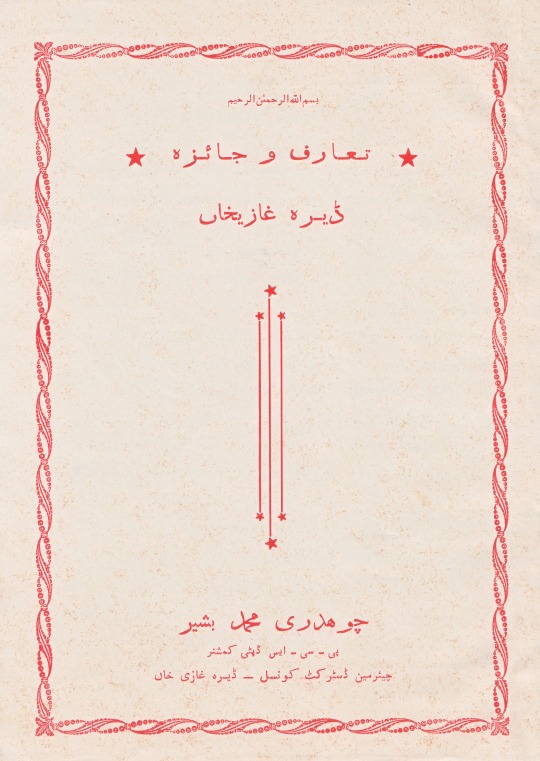
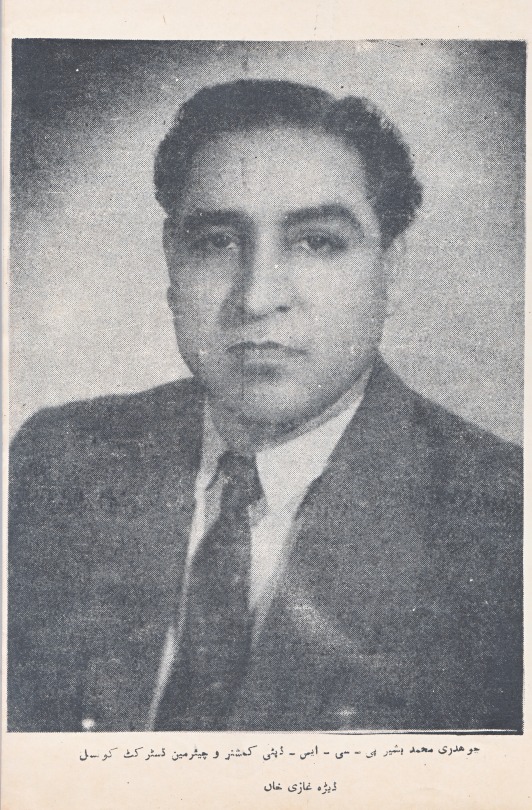
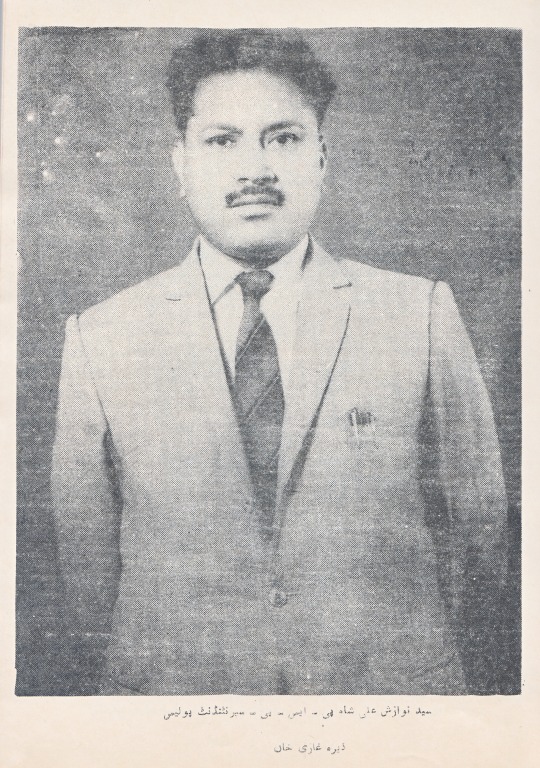
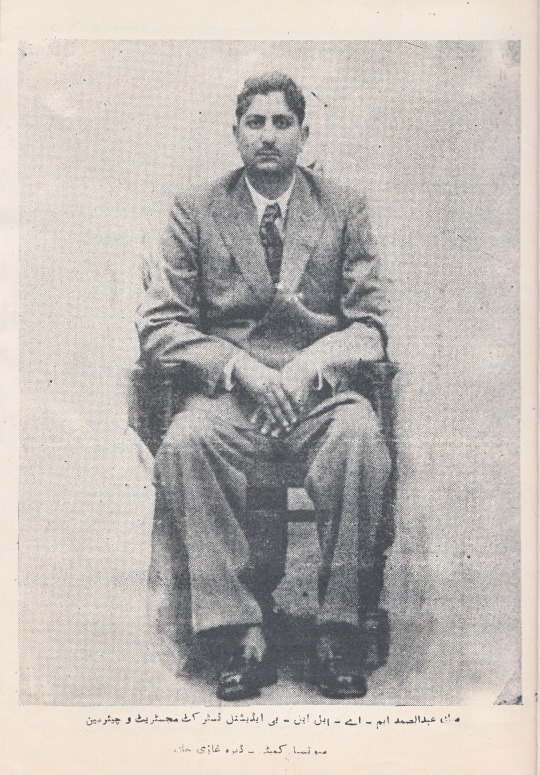
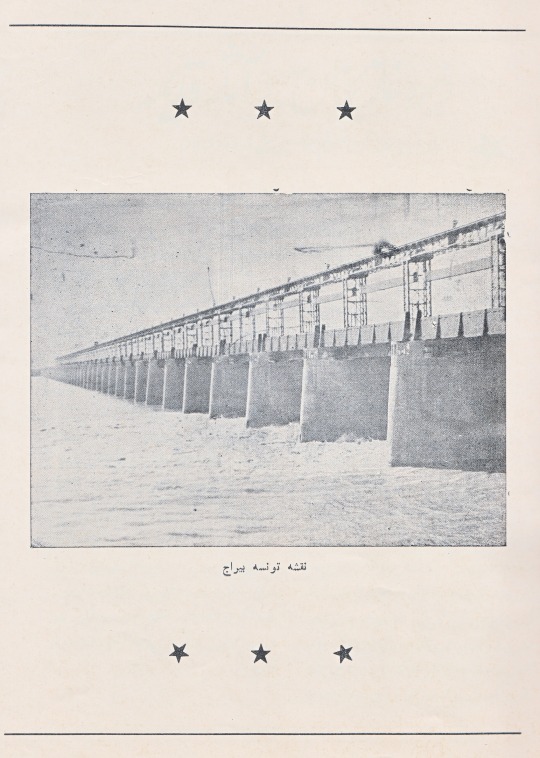
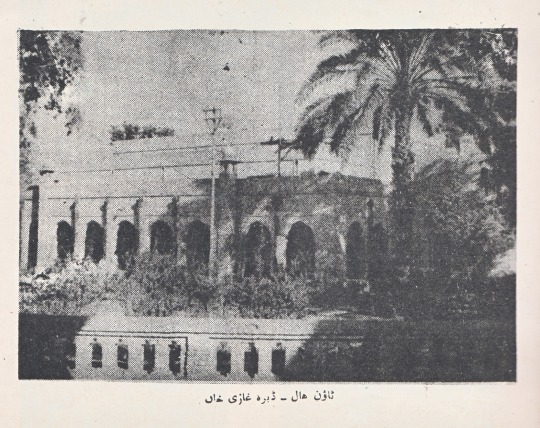
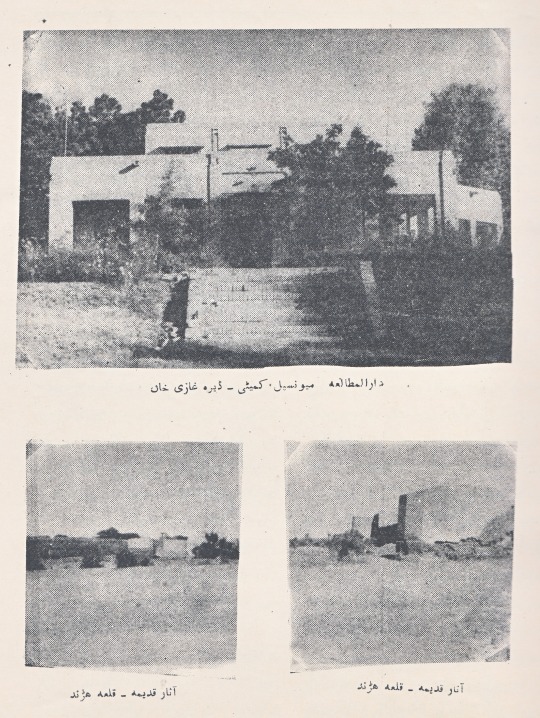

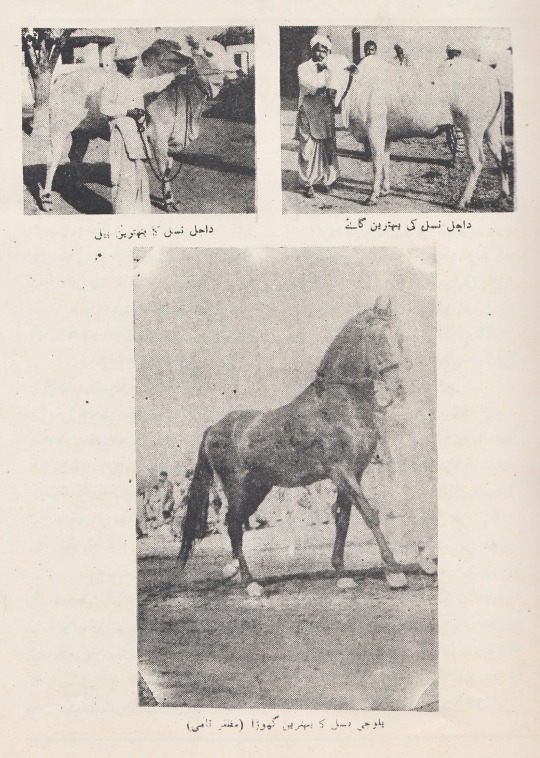
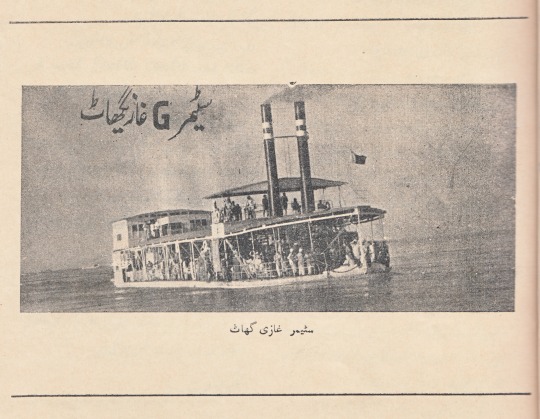
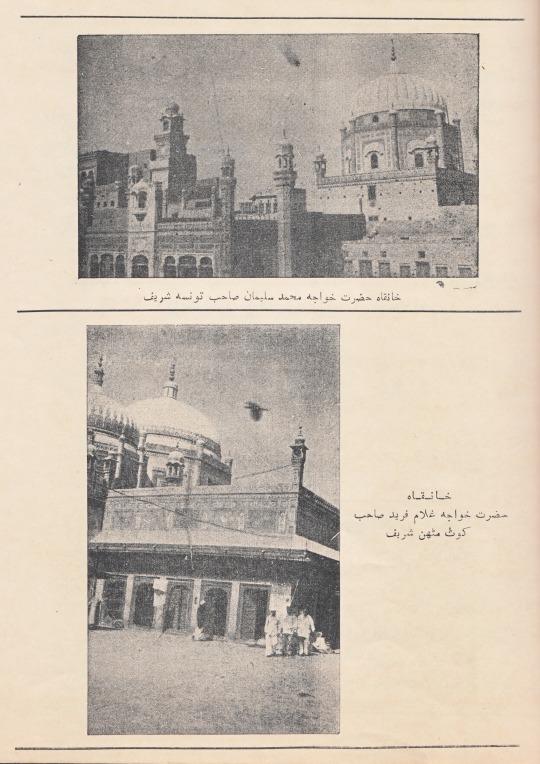
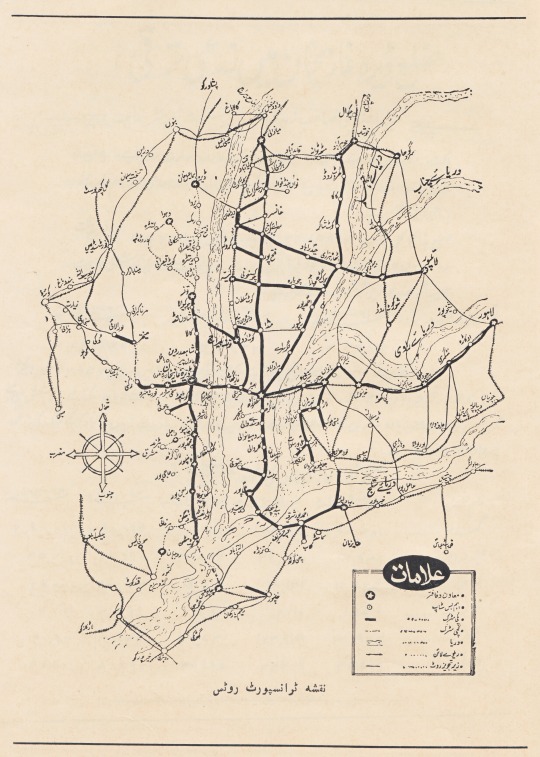
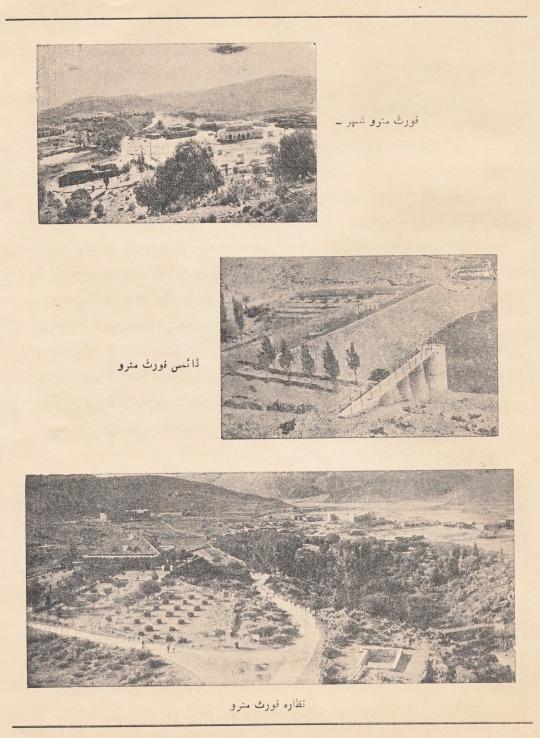
’ تعارف و جائزہ ‘ ڈیرہ غازیخاں
چوھدری محمد بشیر پی ۔ سی ۔ ایس ڈپٹی کمشنر چیئر مین ڈسٹرکٹ کونسل۔ ڈیرہ غازی خاں
#book#book illustrations#کتاب#’ تعارف و جائزہ ‘ ڈیرہ غازیخاں#تعارف و جائزہ ڈیرہ غازیخاں#تعارف و جائزہ#ڈیرہ غازیخاں#dera ghazi khan#transport routes map#Fort Monroe city#Dames Fort Monroe#Dames Lake#Fort Monroe#G steamer Dera Ghazi khan#فورٹ منرو شہر۔ ڈائمس فورٹ منرو۔ نظارہ فورٹ منرو#نقشہ ٹرانسپورٹ روٹس#خانقاہ حضرت خواجہ محمد سلیمان صاحب تونسہ شریف، خانقاہ حضرت خواجہ غلام فرید صاحب کوٹ مٹھن شریف#سٹیمر G غازیگھاٹ#سٹیمر غازی گھاٹ#داجل نسل کی بہترین گائے ، داجل نسل کا بہترین بیل ، بلوچی نسل کا بہترین گھوڑا (مظفر نامی)#Tomb of Ghazi Khan#مقبرہ غازی خاں#دارالمطالعہ میونسپل کمیٹی۔ ڈیرہ غازی خاں، أثار قدیمہ ۔ قلعہ ہڑند#ٹاؤن ہال۔ ڈیرہ غازی خاں#تونسہ بیراج#میاں عبدالصمد ایم۔ اے ۔ ایل ایل ۔ بی ایڈیشنل ڈسٹرکٹ مجسٹریٹ و چیئر مین میونسپل کمیٹی۔ ڈیرہ غازی خاں#سید نوازش علی شاہ پی ۔ ایس۔ پی۔ سپرنٹنڈنٹ پولیس ڈیرہ غازی خاں#چوھدری محمد بشیر پی ۔ سی ۔ ایس ڈپٹی کمشنر و چیئر مین ڈسٹرکٹ کونسل۔ ڈیرہ غازی خاں#چوھدری محمد بشیر پی ۔ سی ۔ ایس ڈپٹی کمشنر چیئر مین ڈسٹرکٹ کونسل۔ ڈیرہ غازی خاں#harand fort
2 notes
·
View notes
Text
Idiomatic Expressions about Court, Law, Order.
(119) مقدمہ بازی سے آدمی تباہ ہو جاتا ہے
Litigation ruins a man.
(120) ایک بھائی نے دوسرے کے خلاف مقدمہ دائر کر دیا ہے۔
One brother has filed a suit against the other in the court.
(121) جج نے ملزم کو ضمانت پر رہا کر دیا۔
The judge released the accused on bail.
(122)مقدمہ کی تاریخ اگلے مہینہ کی 15 تاریخ کو مقرر ہوئی
16th of the next month has been fixed as the date of hearing of the case.
(123) تمہارا جرم ناقابل ضمانت ہے
Your offence is unbailable.
(124) میں نے اس کی ضمانت دی
I stood bail for him.
(125) اس کے مقدمہ کا فیصلہ سنا دیا گیا ہے۔
The judgment in his case has been pronounced or delivered.
(126) جج نے اس کو ایک سال قید با مشقت کی سزا دی ہے
The judge has sentenced him to one year's rigorous imprisonment.
(127) مدعی اور مدعا علیہ دونوں نے اول درجہ کے وکیل کئے ہیں۔
Both the plaintiff and the defendant have engaged first class lawyers.
(128) اس نے میرے خلاف دیوانی نہیں بلکہ فوجداری مقدمہ دائر کیا۔
He has brought a criminal and not a civil case against me.
#Idiomatic Expressions about Court#Idiomatic Expressions about Court law order#Idiomatic Expressions#Law & order#Law and order#Court#اردو#urdu#english#english grammar#urdu into english#urdu to english translation#اردو کا انگریزی ترجمہ#Urdu into English translation#Urdu to English translation#Urdu to English#اردو سے انگریزی#انگریزی صرف و نحو#قانون#مقدمہ بازی
0 notes
Text
Idiomatic Expressions about Health and Disease
(102) آج مجھے قبض معلوم ہوتی ہے کیونکہ مجھے حاجت نہیں ہوئی۔
It seems I have constipation today, for I had no motion.
(103) آپ مہربانی کر کے کوئی قبض کشا دوائی دیں۔
Please give me some laxative.
(104) اس کا بھائی موسمی بخار سے بیمار ہے۔
His brother is laid up with malaria.
(105) آج میری طبیعت خراب ہے ۔
I am out of sorts today.
(106) اس کے ہاتھ کا انگوٹھا اُتر گیا ہے۔
His thumb is dislocated.
(107) میرے پاؤں میں موچ آگئی ہے۔
I have sprained my foot.
(108) ہیضہ۔ تپ دق۔ بواسیر۔ تپ محرقہ۔ گنٹھیا اور پیچش چند نامراد بیماریاں ہیں ۔
Cholera, Tuberculosis (or Phthisis or consumption) piles, Typhoid rheumatism and dysentery are some of the fell diseases.
(109) کیا تمہارا جی متلا رہا ہے
Do you feel nausea ?
(110) ہاں مجھے تھوڑی سی حرارت بھی ہے۔
Yes, I have temperature also.
(111) ہندوستان میں پلیگ نے بڑی تباہی مچائی ہے
In India the plague has wrought havoc.
(112) میری آنکھیں دکھتی ہیں
My eyes are sore.
(113) زیادہ کھانے سے بد ہضمی ہو جاتی ہے۔
Over eating creates indigestion.
(114) وہ نمونیا سے بیمار ہے۔
He is laid up with pneumonia.
(115) اس کا معدہ خراب ہے
His stomach is upset.
(116) اسے پرانا بخار ہے
He has chronic fever.
(117) کل مجھے زکام ہو گیا
Yesterday I caught cold.
(118) کھانسی اور زکام بہت خراب بیماریاں ہیں
Cough and cold are very bad diseases.
#Idiomatic Expressions about Health and Disease#Idiomatic Expressions#Health and Disease#اردو#urdu#english#english grammar#urdu into english#urdu to english translation#اردو کا انگریزی ترجمہ#Urdu into English translation#Urdu to English#اردو سے انگریزی#انگریزی صرف و نحو
0 notes
Text
Idiomatic Expressions about clocks and watches
Clocks, Watches.
(86) گھڑی کھڑی ہو گئی ہے
The watch has run down.
(87) گھڑی کو چابی لگا دو
Wind or wind up the watch.
(88) یہ گھڑی ٹھیک وقت دیتی ہے
This watch keeps correct time.
(89) اس کی گھڑی 15 منٹ آگے ہے۔
His watch is fifteen minutes fast.
(90) میری گھڑی 10 منٹ پیچھے ہے
My watch is ten minutes slow.
(91) یہ گھڑی ہر روز 5 منٹ پیچھے ہو جاتی ہے
This watch losses five minutes every day.
(92) سکول کا کلاک ہر روز دس منٹ آگے ہو جاتا ہے۔
The school clock gains ten minutes every day.
(93) اب کیا وقت ہے
What o'clock is it? or What time is it?
(94) ابھی دس بجے ہیں
The clock has just struck ten.
(95) سکول کے کلاک میں 12 بجنے والے ہیں
The school clock is on the stroke of twelve.
(96) اب چار بج کر دس منٹ ہیں۔
It is ten minutes past four
(97) جب پانچ بجنے میں 10 منٹ ہوں تو مجھے بتا دینا۔
Please inform me when it is ten minutes to five.
(98) وہ ساڑھے بارہ بجے کی گاڑی آوے گا۔
He will come by half past twelve o'clock train
(99) وہ ایک بج کر دس منٹ کی گاڑی آوے گا۔
He will come by 1-10 train.
(100) میں نے گھڑی تار گھر کی گھڑی سے ملائی ہے۔
I have set my watch by the Telegraph office clock.
(101) آپ کی گھڑی میں کیا وقت ہے
What is the time by your watch?
#Idiomatic Expressions about clocks and watches#Idiomatic Expressions#Clocks and watches#Clocks#Watches#Time#اردو#urdu#english#english grammar#urdu into english#urdu to english translation#اردو کا انگریزی ترجمہ#Urdu into English translation#Urdu into English#Urdu to English#وقت#انگریزی ترجمہ#اردو سے انگریزی#انگریزی صرف و نحو
0 notes
Text
Idiomatic Expressions about letters and the post office.
Letters. The post office.
(69)میں نے اپنے دوست کو چٹھی لکھی ہے
I have written a letter to my friend.
(70) اس چٹھی پر ٹکٹ لگاؤ اور اسے ڈاک میں ڈال آؤ۔
Stamp this letter and post it.
(71) چٹھی رساں ہر روز چڑھیاں بانٹتا ہے۔
The postman delivers letters every day.
(72) اس چٹھی پر موہن کا پتہ لکھو
Address this letter to Mohan.
(73) ڈاک خانہ کا کلرک چٹھیوں کی چھانٹ کر رہا ہے۔
The clerk in the post office is sorting the letters.
(74) اگلی ڈاک کب نکلے گی؟
When is the next clearance?
(75) اگلی ڈاک کب بٹے گی؟
When is the next delivery.
(76) یہ چٹھی بڑے ڈاک خانہ میں ڈال آؤ۔
Post this letter at the General Post Office.
(77) انگلینڈ کے لئے ڈاک پاکستان سے ہفتہ میں دو دفعہ جاتی ہے۔
The mail for England leaves Pakistan twice a week.
(78) میں یہ چٹھی رجسٹری کراؤں گا
I shall send this letter by registered post
(79) کیا تم اس چٹھی کا بیمہ کراؤ گے؟
Will you get this letter insured.
(80) تمہاری چٹھی ڈاک میں دیر سے پہنچی۔
Your letter was late for the mail.
(81) تمہاری چٹھی بیرنگ ہو گئی ہے۔
Your letter has become bearing.
(82) ڈاک کی تمام شکائتیں ڈاک خانہ کے بڑے افسر کو کی جاتی ہیں۔
All complaints about post are addressed to the Postmaster General.
(83) وہ اس قصبہ کے ڈاک خانہ کا افسر ہے
He is the Postmaster of the post office of this town.
(84) آج کل چٹھیاں ہوائی ڈاک سے بھیجی جاتی ہیں
Nowadays letters are sent by airmail.
(85) اس کو ایک گمنام چٹھی ملی۔
He received an anonymous letter.
#Idiomatic Expressions about letters and the post office#Idiomatic Expressions#Letters#Post office#اردو#urdu#english#english grammar#urdu into english#urdu to english translation#اردو کا انگریزی ترجمہ#Urdu into English translation#Urdu into English#Urdu to English#اردو سے انگریزی#انگریزی صرف و نحو#خط وکتابت#literature
0 notes
Text
Idiomatic Expressions about Warfare,
War ; Battle ; Siege
(45) یورپ میں جنگ چھڑنے والی ہے۔
War is about to break out in Europe.
(46) پچھلے یورپ کے جنگ میں بہت سی لڑائیاں ہوئیں
Many battles took place in the last European War.
(47) پچھلے سال سپین میں خانہ جنگی ہو رہی تھی۔
Last year Civil War was raging in Spain.
(48) دونوں قومیں جنگ شروع کرنے کو تیار ہیں۔
Both the nations are ready to go to War or wage war.
(49) انگلینڈ نے جرمنی کے خلاف جنگ کا اعلان کر دیا
England declared war against Germany.
(50) فوج میدانِ جنگ میں داخل ہو گئی
The army took to the field
(51) پہلے کس قوم نے لڑائی شروع کی؟
Which nation was the first to draw the sword or take up arms?
(52) یہ لڑائی فیصلہ کن نہ تھی
It was a drawn battle.
(53) یہ لڑائی فیصلہ کن تھی۔
It was a decisive battle.
(54) فوجیں لڑائی کے لئے آراستہ ہیں۔
The armies are drawn up in battle array.
(55) فرینکو کی فوج کو فتح ہوئی اور ریپبلیکن فوج کو ہار ہوئی۔
Franco's army won the victory and the Republican army sustained a defeat.
(56) فاتح فوج نے مقابلے کی فوج کو بھگا دیا
The victorious army put the opposing force to flight.
(57) باغیوں نے بغاوت کا جھنڈا بلند کر دیا ہے
The rebels are up in arms.
(58) جاپانیوں نے شنگھائی کا محاصرہ کیا۔
The Japanese laid siege to Shanghai.
(59) دو مہینے کے بعد محاصرہ اُٹھا لیا گیا۔
After two months the siege was raised.
(60) باغیوں نے ہتھیار ڈال دئے
The rebels laid down their arms.
(61) دو سال ہوئے اٹلی اور ابےسینیا میں جنگ چھڑ گئی
Two years ago, a war broke out between Italy and Abyssinia.
(62) چینی فوج جاپانی فوج سے پیچھے ہٹ رہی ہے
Chinese forces are beating retreat or (retreating) before the Japanese army.
(63) بڑے بڑے سردار لڑائی میں کام آئے
Many great chiefs fell on the battlefield.
(64) قلعے کی فوج نے دو مہینے تک قلعے کو قابو میں رکھا آخر ان کو کمک پہنچ گئی
The garrison held the forces for two months ; at last reinforcement reached them.
(65) فاتح قوم نے مفتوح قوم پر کوئی رحم نہ کیا
The conquerors gave no quarters to the conquered.
(66) احمد شاہ ابدالی نے پانی پت کے میدان پر مرہٹوں کے خوب دانت کھٹے کئے۔
Ahmad Shah Abdali inflicted a crushing defeat on the Mahrattas at the battle of Panipat.
(67) دونوں فوجوں میں عارضی صلح ہو گئی
A truce was declared between the two armies.
(68) جنگ کے خاتمہ پر صلحنامہ کیا گیا۔
A treaty was concluded or signed at the end of the war.
#اردو#urdu#english#english grammar#urdu into english#urdu to english translation#اردو کا انگریزی ترجمہ#Idiomatic Expressions about Warfare#Idiomatic Expressions#Warfare#Urdu to English#Urdu into English translation#Urdu into English#اردو سے انگریزی ترجمہ#اردو سے انگریزی#انگریزی ترجمہ#انگریزی صرف و نحو
0 notes
Text
Miscellaneous Idiomatic Expressions on different topics
Expressions about monetary matters
Money, Debt, Business, Buying, Selling and Bank
(1) وہ گزارہ کے لئے کافی کماتا ہے
He earn enough for his living.
(2) وہ اس بیوپار میں کافی منافع اٹھا رہا ہے
He is making enough or much money in this business.
(3) آس کے پاس نقد روپیہ بہت ہے
He has much ready money.
(4) اس کا روپیہ بنک کے حصّوں میں لگا ہوا ہے
He has his money locked up in bank shares
(5) اس کا بال بال قرضے میں پھنسا ہئوا ہے۔
He is over head and ears in debt.
(6) وہ اب قرضہ سے بالکل آزاد ہے
He is now out of debt.
(7) مجھے اس کا بہت قرضہ دینا ہے
I owe him a large sum.
(8) میں اس کا قرضدار ہوں اور وہ میرا قرض خواہ ہے
I am his debtor and he is my creditor.
(9) قرض خواہ قرضدار کو روپیہ دیتا ہے
A creditor lends money to a debtor.
(10) قرضدار قرض خواہ سے روپیہ لیتا ہے
A debtor borrows money from a creditor.
(11) مجھے پچاس روپیہ ادھار چاہئیں۔
I want a loan of fifty rupees.
(12) کیا تم نے کسی کا کچھ دینا ہے۔
Do you owe anything to anybody?
(13) ہاں میں نے ساہوکار کے پچاس روپے دینے ہیں
Yes, I owe fifty rupees to a banker.
(14) میں اپنا سارا قرضہ چھ مہینے میں ادا کرنے کی امید رکھتا ہوں۔
I hope to clear off my whole debt in six months.
(15) تم نے گھوڑا کتنے کو بیچا۔
What did your horse sell for ? or what did it fetch you? Or what did it bring in?
(16) تم نے گھڑی کتنے کو خریدی
What did your watch cost you? What did you pay for it? Or What is the price of it ?
(17) کیا یہ میز بکاؤ ہے۔
Is this table for sale?
(18) ہاں یہ سب چیزیں فروخت کے لئے ہیں
Yes, all these articles are for sale or on sale.
(19) اس سٹیشنری کے سوداگر کا سارا مال بِک گیا ہے
This stationer's stock has all been disposed of.
(20) اس نے اپنا سارا سامان نیلامی پر بھیج دیا۔
He put up all his furniture for auction.
(21) نیلامی میں گھڑی کے لئے دونوں بھائیوں نے ایک دوسرے کے برخلاف بولی دی
At auction both the brothers bid for the watch against each other.
(22) جس نے سب سے بڑھ کر بولی دی وہ گھڑی کو لے گیا۔
He who bid the highest got the watch.
(23) یہ تصویر نیلامی پر کتنے کو بکے گی۔
What will this picture go for in the auction?
(24) آؤ سودا کریں
Let us strike or make the bargain.
(25) سودا ہو گیا
The bargain is clinched or struck.
(26) وہ چائے اور تمباکو کا بیوپار کرنا ہے
He deals in tea and tobacco.
(27) وہ کھانڈ کا بیوپار کرتا ہے
He carries on the business of sugar.
(28) ہم ادھار کچھ نہیں بیچتے۔
We do not sell anything on credit.
(29) اس کا کاروبار تو ترقی پر ہے۔
He has a roaring trade or he has prosperous run of business.
(30) آج کل بیوپار میں مندہ کی شکایت ہر جگہ ہے
Now-a-days there is trade depression everywhere.
(31) نیشنل بینک کے حصوں کی قیمت بڑھ رہی ہے
The National Bank shares are looking up.
(32) اناج کا بازار تیزی پر ہے مگر روئی کا بازار نرم ہے
Market for corn is brisk, but that for cotton is dull.
(33) گندم کی قیمت بڑھ رہی ہے مگر کھانڈ کی قیمت اتر رہی ہے
The price of wheat is going up or rising but that of sugar is falling.
(34) ایک ہفتہ سے بازار کا بھاؤ رُکا ہؤا ہے
The market has been steady for a week.
(35) بیوپار کا کیا اعتبار۔ آج کچھ ہے کل کچھ۔
Business is uncertain or the market is always fluctuating.
(36) سٹہ بازوں نے بیوپار کا بالکل ستیاناس کر دیا ہے
Speculators have ruined the market.
(37) آڈھت کی دکانیں تو باقاعدہ جؤاخانے بنے ہوئے ہیں
Commission agencies are regular gambling dens.
(38) تم روپیہ کس بنک میں جمع کراتے ہو؟
In which bank do you deposit your money?
(39) اس نے اس بیوپار میں کتنا روپیہ لگایا ہے۔
How much money has he invested in this business.
(40) ہر ایک آدمی بنک سے روپیہ ہفتہ میں دوبار نکلوا سکتا ہے۔
Anyone can withdraw money from the bank twice a week.
(41) کنجوس آدمی روپیہ کو جمع کرتا ہے
Miser hoards money.
(42) فضول خرچ روپے کو ضائع کرتا ہے
Spendthrift squanders money.
(43) وہ مالی مشکلات سے بچنے کے ناقابل ہے۔
He cannot hold his head above water.
(44) بعض وقت بینک میں روپیہ لینے والے کو جب تک کوئی نہ پہچانے روپیہ نہیں ملتا۔
Sometimes payment is withheld if there is none to identify the payee.
#Miscellaneous Idiomatic Expressions on different topics#Expressions about monetary matters#Idiomatic Expressions#Monetary matters#Urdu into English translation#Urdu to English translation#Urdu to English#Urdu into English#اردو#urdu#english grammar#english#اردو کا انگریزی ترجمہ#انگریزی صرف و نحو
0 notes
Text
Idiomatic use of verbs
Pass, Stand, Strike and Turn
A. (1) غائب ہو جانا یا مر جانا
Pass away
(2) خیال نہ کرنا۔ چھوڑ دینا
Pass by
(3) سمجھا جانا
Pass for
(4) کھوٹے سکے گا چلانا
Pass off
(5) بیچ میں سے گزرنا
Pass through
B. (6) مدد کرنا
Stand by
(7) تکلف کرنا
Stand on ceremony
(8) عقل کے مطابق ہونا
Stand to
(9) مدد کرنا۔ حق میں ہونا
Stand up for
C. (10) نام خارج کر دینا
Strike off
(11) ہڑتال کرنا۔ کام بند کرنا
Strike work
(12) دیا سلائی جلانا
Strike a match
(13) چوٹ لگانا۔ وار کرنا
Strike at
D. (14) آنا۔ ظاہر ہونا
Turn up
(15) باہر نکالنا یا تیار کرنا
Turn out
(16) (رخ بدل دینا۔ موقوف کر دیا۔ بند کر دینا (نلکہ
Turn off
(17) منحصر ہونا
To turn upon
#Idiomatic use of verbs#Idiomatic use#Verbs#Urdu to English translation#Urdu into English translation#Urdu to English#Urdu into English#اردو#urdu#english#english grammar#اردو کا انگریزی ترجمہ#انگریزی صرف و نحو#اردو سے انگریزی
0 notes
Text
Idiomatic use of verbs
Draw, Hand, Lay, Let, Live
A. (1) نزدیک آنا
Draw near
(2) مسودہ تیار کرنا
Draw up
(3) نتیجہ نکالنا
Draw a conclusion
(4) توجہ کھینچنا
Draw attention
(5) پیچھے ہٹنا۔ وعدہ سے پھرنا
Draw back
(6) قرعہ ڈالنا
Draw lots
B. (7) نسلاً بعد نسلاً منتقل کرنا
Hand down
(8) ہاتھ سے دینا
Hand in
(9) حوالے کر دینا
Hand over
(10) دوسرے کے حوالے کر دینا
Hand on
C. (11) ایک طرف رکھ دینا
Lay aside
(12) آئندہ استعمال کے لئے بچا رکھنا
Lay by
(13) زور سے مارنا
Lay on
(14) باغ وغیرہ لگانا۔ ترتیب دینا
Lay out
(15) بیماری سے بستر پر پڑے رہنا
To be laid up with
D. (16) چھوڑ دینا
Let alone
(17) اندر داخل ہونے دینا
Let in
(18) چھوڑ دینا۔ آزاد کر دینا
Let off
(19) کرایہ پر دینا
Let out
(20) راز بتانا
Let into (a secret)
E. (21) گزارہ کرنا
Live by
(22) کسی مدعا کے لئے جینا
Live for
(23) کسی چیز کو کھا کر جینا
Live on
(24) اپنی آمدنی کے اندر گزارہ کرنا
Live within
#Idiomatic use of verbs#Idiomatic use#Verbs#اردو#urdu#english#english grammar#urdu into english#urdu to english translation#اردو کا انگریزی ترجمہ#Urdu to English#Urdu into English translation#Urdu into English#English to Urdu#English into Urdu#انگریزی ترجمہ اردو کا انگریزی ترجمہ#اردو سے انگریزی#اردو صرف و نحو#انگریزی صرف و نحو
0 notes
Text
Idiomatic use of verbs
Make, Put, Run, Set, Take.
A. (1) کسی طرف کو جانا
Make for
(2) معلوم کرنا۔ مطلب سمجھنا
Make out
(3) کمی پوری کرنا
Make up
(4) حوالے کرنا
Make over
(5) صلح کر لینا۔ دوست بن جانا
Make it up with
(6) پاس جانا
Make up to
(7) دور کرنا۔ مار دینا۔
Make away with
B. (8) پہننا۔ اختیار کرنا
Put on
(9) اتارنا۔ ملتوی کرنا
Put off
(10) بجھا دینا
Put out
(11) کسی جگہ ٹھیرنا
Put up
(12) بغاوت کو دبانا
Put down
(13) کسی بات کو برداشت کرنا
Put up with
C. (14) ضائع کرنا جلدی سے خرچ کرنا
Run through
(15) کچلنا۔ روندنا
Run over
(16) ختم ہو جانا
Run out
(17) کم ہو جانا
Run short
(18) قرضے میں ہونا۔ خطرے میں پڑنا۔
Run into debt or danger
(19) ٹکرانا
Run into
(20) کسی کو لے کر بھاگ جانا
Run away with
D. (21) کام شروع کرنا
Set about
(22) شروع کرنا
Set in
(23) پرواہ نہ کرنا۔ نامنظور کرنا
Set aside
(24) چلنا۔ روانہ ہونا
Set out or set off
(25) قائم کرنا۔ جاری کرنا
Set up
(26) لکھنا
Set down
(27) آگ لگانا
Set fire to or set a thing on fire
E. (28) مِلنا جلنا۔ مشابہت رکھنا
Take after
(29) لکھنا
Take down
(30) سمجھنا۔ دھوکہ دینا
Take in
(31) غلطی سے کچھ اور سمجھ لینا
Take for
(32) اُتارنا
Take off
(33) کسی کام کی عادت ڈالنا
Take to
(34) غرور کی شکل یا لہجہ اختیار کرنا
Take
(35) محنت کرنا
Take pain
#english grammar#اردو#urdu#english#urdu into english#urdu to english translation#اردو کا انگریزی ترجمہ#Idiomatic use of verbs#Verbs#Idiomatic use#Urdu into English translation#Urdu into English#Urdu to English#اردو سے انگریزی#انگریزی صرف و نحو
0 notes
Text
Idiomatic use of verbs
Get, Give, Go, Hold, Keep, Look
A (1) جاگنا
Get up
(2) مشکلات پر غلبہ پانا
Get over
(3) پہنچنا۔ حاصل کرنا
Get at
(4) ختم کرنا۔ پاس کرنا
Get through
(5) چھٹکارا پانا
Get rid of
(6) معلوم ہو جانا۔ پھیل جانا
Get wind
(7) گھوڑے پر سے اُترنا۔
Get off
(8) جماعت میں چلنا یا ترقی کرنا
Get on
(9) کسی کے ساتھ گزارہ کرنا
Get on with
B (10) ہار جانا
Give in
(11) چھوڑ دینا
Give up
(12) ٹوٹ جانا۔ ہار جانا
Give way
(13) مشتہر کرنا۔ ختم کرنا
Give out
(14) انعام تقسیم کرنا
Give away
C. (15) بجھ جانا
Go out
(16) بندوق وغیرہ کا چلنا
Go off
(17) امتحان دینا
Go up for
(18) پڑھنا
Go through
(19) کسی چیز کو حاصل کرنا یا کسی کے حق میں ہونا
Go in for
D. (20) لگ سکنا
Hold good
(21) قابو میں رکھنا
To hold in check
(22) چپ رہنا
To hold one's tongue
E. (23) چھپائے رکھنا۔ بچائے رکھنا
Keep back
(24) برقرار رکھنا
Keep up
(25) ساتھ ساتھ چلنا
Keep up with
(26) دور رہنا۔ نہ ملنا
Keep aloof
F. (27) خیال رکھنا۔ نگرانی کرنا
Look after
(28) نفرت کرنا
Lock down upon
(29) تلاش کرنا
look for
(30) اُمید رکھنا
Look out for
(31) امتحان کے پرچے دیکھنا
Look over
#Idiomatic use of verbs#Idiomatic#Use of verbs#اردو#urdu#english#english grammar#urdu into english#Urdu into English translation#Urdu to English translation#Urdu into English#Urdu to English#اردو سے انگریزی ترجمہ#اردو کا انگریزی ترجمہ#اردو سے انگریزی#انگریزی صرف و نحو
0 notes
Text
Idiomatic use of some important verbs.
Break, bring, come, call, fall
A (1) نقب لگانا۔ توڑ کر داخل ہونا۔
Break into
(2) دروازہ یا تالا توڑنا۔
Break open
(3) لڑائی یا بیماری کا شروع ہونا۔
Break out
(4) برخاست ہونا۔ سکول کا بند ہونا۔
Break up
(5) گھوڑے کو سدھانا۔
Break in
(6) دوستی توڑنا۔
Break with
B (7) واقع کرنا۔
Bring about
(8) پیدا کرنا۔
Bring forth.
(9) تربیت دینا۔ پرورش کرنا۔
Bring up
(10) ظاہر کر دینا۔
Bring to light
(11) ہم خیال بنا لینا۔
Bring round to one's views
(12) جواب طلبی کرنا۔
Bring to book
C (13) واقع ہونا۔
Come to pass
(14) حاصل کرنا۔
Come by
(15) ظاہر ہونا۔
Come to light
(16) بالغ ہو جانا۔
Come of age
(17) اتفاق سے ملنا۔
Come across
(18) پیدا ہونا۔
Come of
(19) واقع ہونا یا اتر جانا۔
Come off
D (20) کسی کو ملنے جانا۔
Call upon
(21) کسی کے گھر پر جانا۔
Call at
(22) یاد کرنا۔
Call to mind
(23) بلانا
Call in
(24) شک کرنا۔
Call in question
(25) جواب طلبی کرنا۔
Call to account
E (26) رائے پاس نہ ہو سکنا۔ گر جانا۔
Fail through
(27) اثر نہ کرنا۔
Fall flat
(28) ملنا۔
Fall in with
(29) لڑ پڑنا۔ جھگڑنا۔
Fall out with
(30) کم ہونا۔
Fall short of
#Idiomatic use of some important verbs#Idiomatic use#Important verbs#Verbs#English#english grammar#Urdu#Urdu into English translation#Urdu into English#Urdu to English translation#Urdu to English#اردو#اردو سے انگریزی ترجمہ#اردو سے انگریزی#اردو کا انگریزی ترجمہ#اردو کا ترجمہ#انگریزی صرف و نحو
0 notes